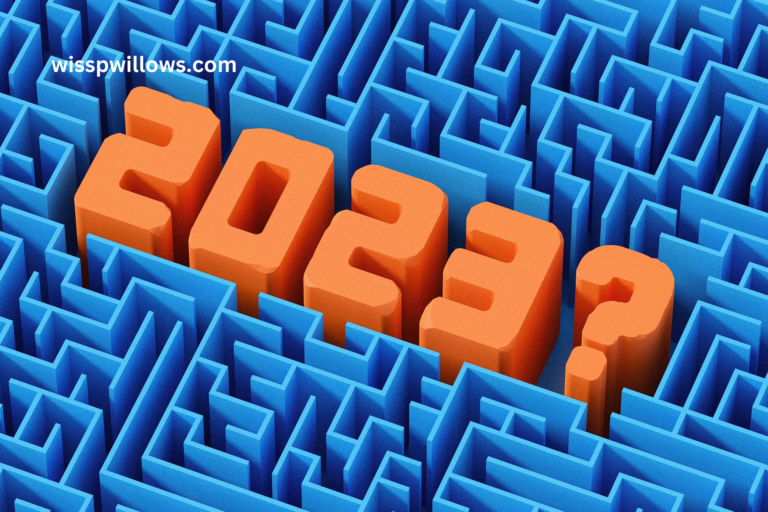
CoomerParty: Breaking Down The Idea As Well As Its Cultural Effect
The evolution of internet memes gives birth to new internet cultures that influence the way one perceives modern day life. One such outburst from the meme culture is the notion of “Coomer” and the use of the term “Coomer Party.” While these terms may seem unusual, they actually reflect wider concerns regarding our dependence on the internet, over consumption, and the difficulties of a contemporary society.
In this article, we set out what “Coomer” and the “CoomerParty” came to represent, their historical significance as well as the controversies surrounding them. This post will help realize many of the digitally-aged issues that we’ve been facing and provide insight on how one ought to alter their internet habits.
What exactly does the word coomer translate to?
The Coomer term finds its origins in meme culture on websites like Reddit and 4chan. Coomer has been widely used as a funny stereotype, that represents, someone who has been found to be over consuming certain kinds of digital materials, including pornographic content, to the point of developing bad habits. Coomer character is shown on memes as a cartoon character who is obese and always looks down at his computer, as one that is the victim of a digital addiction.
Indulgence and the constant need to escape are two major problems today. While there is no actual ‘CoomerParty’ on the surface, the idea attached to this term revolves around the much wider ‘Coomer’ concept attached with this party. As for the coomer memes, they highlight everything that comes from overconsumption of content, albeit in a humorous manner.
Understanding the CoomerParty means understanding what people with similar options and habits found to attach themselves to a far deeper meaning to being ‘coomers’. Integrating words like ‘Coom’ and ‘Coomer’ in their day to day pieces of language, these meme connoisseurs found themselves attached to some other coomer memes that satirized societies norms and giving birth to the ‘Coomer Party’ which has a completely different meaning now.
It can also mean criticizing consumer culture and attention seeking behavior online without realizing the intended message of the content has been lost. There is an irony within the coomer party, where it while being overly consumed, its impact is quite the opposite. Some of the most common themes include difficulty in time management where one consumes a lot of content without taking a break and didn’t have a healthy relationship with technology as a whole, further aggravating the overconsumption issue.
Historical and Cultural Context
The much-vaunted “CoomerParty” is not an isolated commentary, it is another feature of a more extensive meme culture that seeks to be humorous while addressing pertinent issues in society. Memes such as the “Coomer” draw attention to serious issues such as internet overuse, screentime abuse, and the role of escapism in society.
Other, more recent meme phenomena, include “Do You Want To Inhibit Me” (“Doomer”) – pessimistic, and defeated by modern reality, and “LMAO Zoomers” – young enthusiastic and carefree members of Gen Z, are also present in “Coomer.” Such characters exhibit topical dominants of boredom, excess consumption, and depletion of meaning in the era of computerized existence.
In this sense, memes are cultural artifacts and markers in the sense that they can encapsulate certain ideas that are generally considered complex in a condensed and (in most cases) dramatic and humorous form that is easier to reproduce. In this manner, they can make issues that are fundamentally serious more appealing and bring a discussion that many people can relate to.
The Role of Memes in Propagating the Concept
The “CoomerParty” concept is difficult to comprehend for outsiders, nonetheless, the format still has considerable force and spectacular reach, as do all memes. The ideas and descriptions that are associated with the Coomer ideology, Coumer memes indeed visuals make the ideas easy to draw out. Some of the most amusing images of “Coomers” entities appears in meme culture where characters are put into extreme surreal situations rendering their creators and followers to relish these aspects.
Coomer memes have also undergone a major change since their creation. Although it began as a caricature of certain behaviors, manifestation of a more serious issue such as addiction or stark increase in a consumer-driven society. Online communities are constantly changing the narrative during the meme’s lifecycle to make its existence relevant.
Criticism and Controversies
Not every person or group who uses the term “Coomer” or “CoomerParty” is uninterested in criticism. Other people have voiced concerns that such memes amplify stereotypes or trivialize people who are trying to deal with addiction or other forms of suffering. Such critiques illustrate the fine line that memes have of being funny and crossing the line into being damaging for some.
Those who create these memes, and the communities surrounding them, often argue that these memes are meant to be social critiques and should not be taken too seriously, and thus aim to invoke self-reflection rather than shame. But since humor is subjective, reactions and interpretations will also be very different and this sheds light on the ethical dilemmas one faces when creating and sharing memes.
CoomerParty as Social Commentary
More than just humor, CoomerParty embodies the sociopaths depiction of modern society’s fears. It is a reflection of how we feel about technology, the ease in which one can be satiated, and how we feel isolated in an interconnected society. It serves as a critique of consumerism to an extent, especially the way in which the human mind is treated in the online world.
Some interpret it as an nudge towards introspection, advising self-regulation, and harmony in one’s daily routine. Or perhaps we should look at the CoomerParty in a different way – as a sarcasm, a unified feature of the lifestyle which is difficult to adapt to in conditions of reality enclosing in the present-day context.
Hence when members of the forum posted their photographs on Reddit under the heading of the CoomerParty, it can be noted that this party is held on many platforms in the Western world, many have responded and contributed to the idea, the narrative has changed as more contributors come into the picture.
And although the term and its experience will remain constant, the cultural relevance of its representation and the modes of its creation and perception are ever changing. The fact that the nuft has viralized the word coomer shows the direction in which online culture is moving. What else can be drawn from this Coomerparty? For example, the unhealthy obsession with technology, or the fact that a large number of people struggle to find their purpose in life.
In some way,
Screen addiction, especially among the youth, has become a matter of contention owing to how the ‘Coomer’ conversations that have now created memes on them, further the causal discourse of the underlying narrations pertaining to the issue. The Coomer Party uses these congenial issues to present strong ones within the cool and dank humor that encompasses the CoomerParty.
CoomerParty Revisited
As a form of internet meme,
the idea of CoomerParty was fiercely mockering but antagonically flipped as the fulcrum that points hot button issues. With pre-existing memes, it forebodes what the potential gathering of all memetic principles involved in self irony laughter would achieve. It’s showing how a single drawn out image can perpetuate self awareness of blogs while broadening their co sourced meta templates.
More so the latter assertion is critical while seeking to engage with cosmovisions that pave the way for the Coomer Party and so enabling them to disengage with overarching issues affecting their society. It is not about the meme and laughing at it but rather the nuanced subtle fears that it speaks of and the legitimate concern for why a healthy digital lifestyle is needed.









